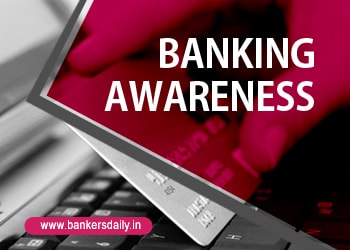Cheque And Their Different Types
Want to Become a Bank, Central / State Govt Officer in 2020?
Join the Most awarded Coaching Institute & Get your Dream Job


Now Prepare for Bank, SSC Exams from Home. Join Online Coure @ lowest fee
Lifetime validity Bank Exam Coaching | Bank PO / Clerk Coaching | Bank SO Exam Coaching | All-in-One SSC Exam Coaching | RRB Railway Exam Coaching | TNPSC Exam Coaching | KPSC Exam Coaching
Cheque And Their Different Types
What is cheque?
A cheque is an unconditional order addressed to a banker,signed by the person who has deposited money with a banker,requesting him to pay on demand a certain sum of money only to the order of certain person or to the bearer of the instrument.
(Or)
A cheque is a document that orders a bank to pay a specific amount of money to the person in whose name the cheque has been issued. Cheque is used to make safe and convenient payment.
Cheque is a financial instrument which can be transferred to another party by simply endorsing it.
After opening an account in a bank, with cheque book facility, the bank you will provide you with a cheque book. However, there are various kinds of chequebook you receive and it would depend on the type of account you have. The number of cheques in a cheque book also differs depending on the account. Charges also vary depending on the type of account, like current account, where more cheque leaves are provided as compared to individual savings account.
Parts of a Cheque:
The four main items on a cheque are:-
- Drawer, the person or entity who makes the cheque
- Payee, the recipient of the money
- Drawee, the bank or other financial institution where the cheque can be presented for payment
- Amount, the currency amount
History of Cheques in India:
The Cheque was introduced in India by the Bank of Hindustan. In 1881, the Negotiable Instruments Act was enacted in India. The NI Act provided a legal framework for non-cash paper payment instruments in India. In 1938, the Calcutta Clearing Banks’ Association, which was the largest bankers’ association at that time, adopted clearing house.
Until 1 April 2012, cheques in India were valid for a period of six months from the date of their issue, before the Reserve Bank of India issued a notification reducing their validity to three months from the date of issue.
Different Types Of Cheque:
1) Open cheque or bearer cheque:
The issuer of the cheque would just fill the name of the person to whom the cheque is issued, writes the amount and attaches his signature and nothing else. This type of issuing a cheque is also called bearer type cheque also known as open cheque or uncrossed cheque. In simple words, Bearer cheque means the person who is holding the instrument can withdraw money form the bank account. Issuing these types of cheques are risky because if the payee misplace it than the finder can withdraw money from the bank.
2) A crossed cheque or an account payee cheque:
It is written in the same as that of bearer cheque but issuer can cross it by adding two parallel lines on the right hand top corner.Only person name written on it can get the amount transferred to his account. In no condition he can withdraw cash. It is considered the safest kind of cheque, as we can find to which account the money has been transferred.
3) Order Cheque:
In case of order cheque the payee in whose name the cheque has been issued can only withdraw the money. When the word “bearer” appearing on the face of a cheque is cancelled and when in its place the word “or order” is written on the face of the cheque, the cheque is called an order cheque. Such a cheque is payable to the person specified therein as the payee, or to any one else to whom it is endorsed (transferred).
4) Post Dated Cheque (PDCs) :
PDCs are cheques issued with future date on it. The cheque issued today will be vailed for three months from the date of issue. It is used for business purposes or making of payment in future date. For example ; on 11/1/2015 you are issuing it dated 15/4/2015 than it will called post dated cheque and will be vailed for three months from 15/4/2015.
5) Anti Dated Cheque:
If a cheque bears a date earlier than the date on which it is presented to the bank, it is called as “anti-dated cheque”. Such a cheque is valid upto three months from the date of the cheque. For example on 11/1/2015 you are issuing a cheque dated 1/1/2015 than it will called anti dated cheque and will be vailed for three months form 1/1/2015.
6) Stale Cheque:
If a cheque is presented for payment after three months from the date of the cheque, it is called stale cheque. A stale cheque is not honoured by the bank.
7) Gift Cheque
Gift cheque, it is a cheque forirted in decorative form issued for a small extra charge by the banks for use by customers who wish to give presents of money on special occasions. Gift cheques may be purchased in unlimited numbers from every branch of the ‘X’ Bank.
8) Traveller’s Cheque
A traveler’s cheque is a medium of exchange that can be used in place of hard currency. … They were generally used by people on vacation in foreign countries instead of cash, as many businesses used to accept traveler’s cheques as currency.
9) Multilated Cheque
If a cheque is torn into two or more pieces such cheque is Mutilated Cheque. If it presented for payment, such a cheque the bank will not make payment against such a cheque without getting confirmation of the drawer. In case, if a cheque is torn at the corners and no material fact is erased or cancelled, the bank may make payment against such a cheque.
Important Links
»List of States, CM’s and Governors




